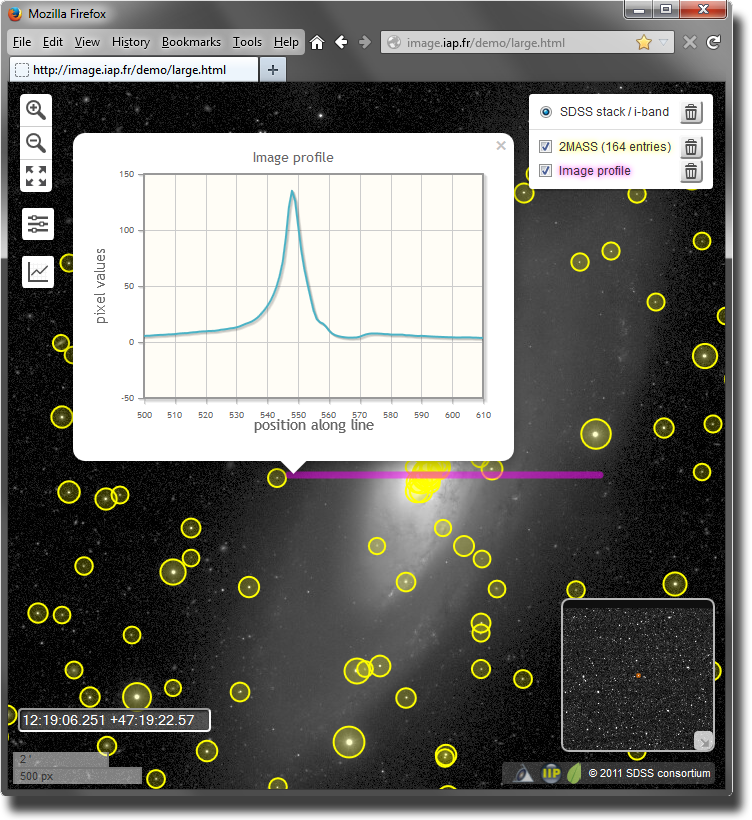On this website you will find information about AstrOmatic software, including download links to the latest versions and documentation, as well as access to the discussion forum and to development repositories. If you are into nerdy stuff, or to learn more on how to use the software, you might also want to check out the AstrOmatic technical blog. Be sure to register to leave comments on posts! If you would like to contribute to AstrOmatic software development, documentation or to these columns, please contact the administrator.
Most recent post:
Visualizing large science images in a web browser
 |
In this paper, we propose a scalable client-server system for web-based streamed viewing and zooming of large science images in Astronomy applications. User interfaces based on this framework are embeddable in regular Web pages, blog posts, or wiki entries. Targeted use cases include visual survey data query and exploration, remote image quality control, educational or training demos and interactive press release material. |
Visualizing and navigating through large astronomy images from a remote location with traditional astronomy display tools can be a frustrating experience in terms of speed and ergonomics, especially on mobile devices.
IIPImage is a versatile system for scientific image visualization and remote analysis, entirely based on Web technologies. IIPImage has a long history and finds its roots in the mid 1990’s in the cultural heritage field where it was originally created to enable the visualization of high resolution colorimetric images of paintings. In order to deal with astronomy science images we brought new features to the IIPImage server, and set up an internal pipeline entirely in floating-point format.
A variety of web clients already exists for IIPImage. For this project we focused on interfaces for both planetary data and celestial images.
VisiOmatic is an open source celestial image viewer developed at AstrOmatic. The current prototype is based on the Leaflet Javascript library, and works on both touch-based and mouse-based devices.
Please check out the VisiOmatic homepage for information and demos.






